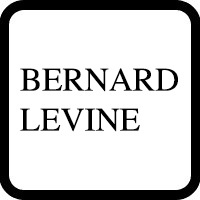Himrod White Collar Crime Lawyer, New York
Sponsored Law Firm
-
 x
x

Click For More Info:
-
Cohen & Bernstein, L.L.C.
1360 Clifton Ave #309 Clifton, NJ 07012» view mapCriminal Defense We’re In this Together!
We work hand in hand with our clients to ensure all of your questions are answered and progress through your legal issue is seamless.
800-978-7341
Not enough matches for Himrod White Collar Crime lawyer.
Below are all Himrod Criminal lawyers.
Bernard D. Levine
✓ VERIFIEDBankruptcy & Debt, Estate, Real Estate, DUI-DWI, Divorce & Family Law
Bernard D. Levine is a practicing lawyer in the state of New York.
Gregory A. Franklin
✓ VERIFIEDDivorce & Family Law, Criminal, Real Estate, Personal Injury, Estate
An adoptive parent himself, Gregory Franklin has experienced first-hand the challenges and joys of adopting a child. Adoptions involve a highly emotio... (more)
FREE CONSULTATION
CONTACTLee Matthew Van Houten
Alimony & Spousal Support, Bankruptcy, Collection, Criminal
Status: In Good Standing
FREE CONSULTATION
CONTACTMichael Schmitt
Traffic, Custody & Visitation, Criminal, Divorce & Family Law
Status: In Good Standing
FREE CONSULTATION
CONTACT Lindsay Bernstein Clifton, NJ
Lindsay Bernstein Clifton, NJ Practice AreasExpertise
Practice AreasExpertise


